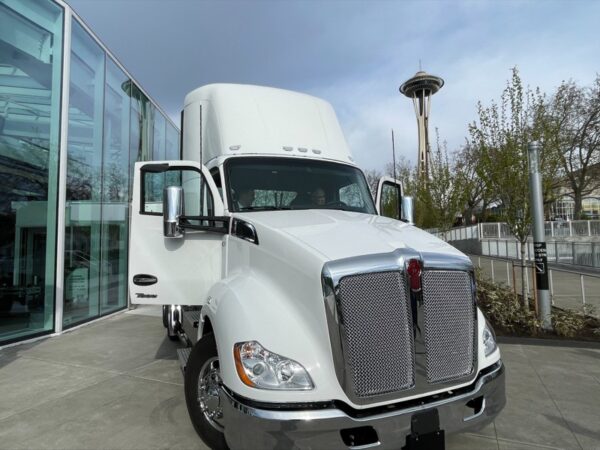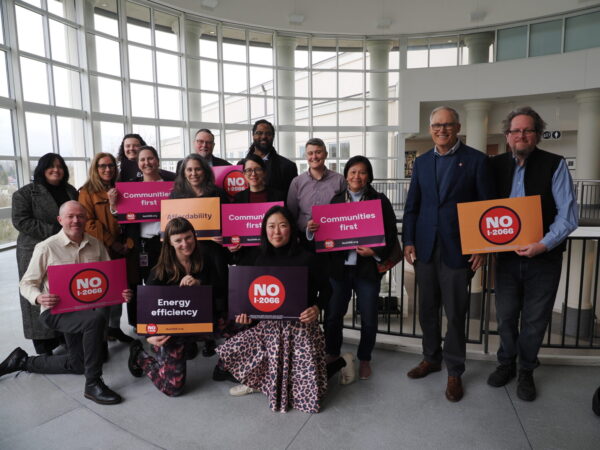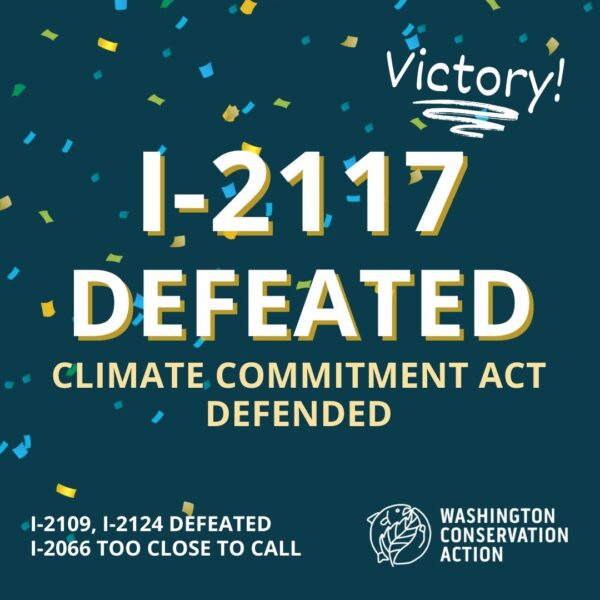Northwest Innovation Works’ latest report grossly underestimates climate impacts of controversial petrochemical proposal
POWER PAST FRACKED GAS
August 30, 2019 (Kalama, WA)—Today, the Port of Kalama and Cowlitz County released their final supplemental environmental impact statement for the world’s largest fracked-gas-to-methanol refinery, proposed for Kalama, WA. The report, commissioned by Northwest Innovation Works (NWIW), the company behind the proposal, dramatically downplays the climate impacts of the proposed refinery.
The refinery faces significant opposition from local communities and Governor Jay Inslee because it threatens public health and the climate. The refinery would consume a stunning amount of fracked gas—and become Washington’s largest greenhouse gas polluter by 2025.
“The report released today is dramatically misleading,” said Dan Serres, Conservation Director of Columbia Riverkeeper. “The EIS dodges the refinery’s greenhouse gas impacts by relying on cherry-picked studies, outdated information, and deceiving the public and regulators about the use of the methanol. Whether for fuel or for plastic, NWIW’s project will have a tremendously negative impact on the river and our climate.”
In addition to climate and health impacts, the methanol refinery would require a new pipeline to carry fracked gas. Landowners on the pipeline route have already received notice that the company could use eminent domain to take their land.
Last December, the Washington Department of Ecology submitted comments on the draft supplemental environmental impact statement, noting a number of deficiencies, particularly that it failed to sufficiently and accurately study a mitigation package, production alternatives, or the lifecycle greenhouse gas emissions of the project. Ecology also questioned NWIW’s claim that the methanol would never be burned as fuel, even prior to the release of NWIW’s investor documents showing how the company intended to sell methanol for fuel. These recommendations were not adequately addressed in the final report. Ecology will soon decide whether the project can move forward.
“Ignoring the massive impact this refinery would have on our climate won’t make it go away,” saidCecile Gernez, Organizer with the Sierra Club Washington State Chapter. “Northwest Innovation Works wants to sell this massive fracked gas project as somehow good for the climate, but we’re not buying it. We were glad to see the Department of Ecology recognize the serious flaws in the draft statement, which have still not been addressed, and we hope they will protect our communities by rejecting this dirty and dangerous proposal.”
“The proposed methanol refinery is a globally significant polluter trying to plunk down in the middle of our little town,” said Mark Uhart, a Kalama resident. “We urge Ecology to recognize the risk that the world’s largest fracked gas refinery will pose to our climate, our community, and our state’s clean energy goals. Northwest Innovation Works continues to dramatically understate the amount of greenhouse gases that will be attributed to the operations of this plant. On a daily basis, this will be a huge polluter as well as a drain on our resources.”
“Northwest Innovation Works has tried to mislead our community for over 5 years,” said Cambria Keely, a 17 year old lifelong resident of Kalama. “They told their investors that the methanol would be used for fuel, which completely changes the environmental impacts from what our agencies were told, which is that the methanol will solely be used for plastic production. Any company that feels comfortable lying to get what they want is not a company which is welcome in Kalama. I hope the Department of Ecology will do the right thing and say no to this manipulative operation.”
To date, members of the Power Past Fracked Gas Coalition have submitted nearly 150,000 comments and statements opposing fracked gas proposals in Washington including Kalama Methanol and Tacoma LNG.
About the project: A subsidiary of the Chinese Academy of Sciences called Northwest Innovation Works proposes building two of the world’s largest fracked-gas-to-methanol refineries in Kalama, Washington and Port Westward, Oregon. Methanol is a chemical used to make plastic or burned as a fuel. A single refinery could consume 320 million cubic feet of fracked gas per day, more than all other industrial uses in the State of Washington combined. Each refinery would emit more than 1 million tons of greenhouse gases from the smokestacks alone—and emit up to 7 million tons when “upstream” methane leakage is considered.
###
Media Contacts:
– Jonathon Berman, Sierra Club, jonathon.berman@sierraclub.org,
202-297-7533
– Dan Serres, Columbia Riverkeeper, dan@columbiariverkeeper.org,
503-890-2441
Power Past Fracked Gas is a growing coalition of Pacific Northwest health, environmental, faith, and community groups that believe in the power of clean energy and the value of clean water. We oppose new fracked gas infrastructure that locks our region into decades of continued reliance on dirty energy and harmful projects.



